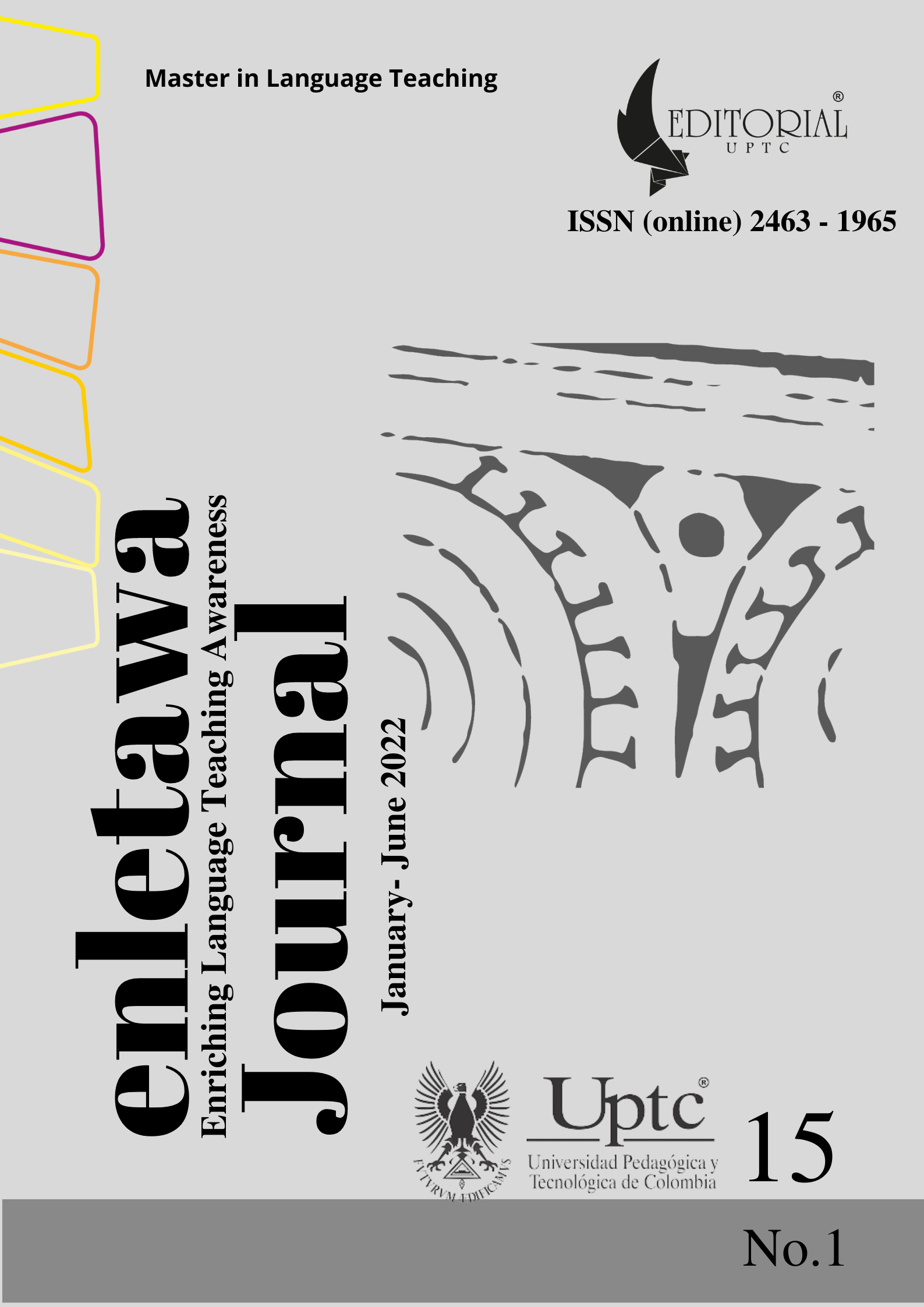Percepciones de los estudiantes de licenciatura sobre las pruebas estandarizadas de inglés

Resumen
Este reporte de investigación examina las percepciones de un grupo de estudiantes de inglés como lengua extranjera con respecto a los exámenesestandarizados aplicados en una facultad de lenguas en el estado de Veracruz, México. En este programa académico, todos los estudiantes toman los mismos exámenes, cuyo fin es evaluar su nivel de competencia en inglés. Para este estudio se utilizó un cuestionario con preguntas abiertas y cerradas con el objetivo de examinar los puntos de vista de los participantes en lo que se refiere al diseño de los exámenes, su validez, e imparcialidad. En el presente reporte, se utilizan tanto datos numéricos como las opiniones de los estudiantes para apoyar la presentación de resultados. Al analizar las respuestas al cuestionario fue posible identificar si los participantes consideraban que este tipo de exámenes son justos, confiables, y válidos para evaluar su competencia en inglés. Adicionalmente, esta investigación ayudó a identificar debilidades y fortalezas de los exámenes estandarizados en este contexto
Palabras clave
Exámenes estandarizados, evaluación, inglés como lengua extranjera, percepciones de los estudiantes
Biografía del autor/a
Enrique Vez López
Doctor en Ciencias del Lenguaje
Karla Elizabeth Molina Muñoz
Maestra en Enseñanza del inglés como lengua extranjera
Diana Iveth Sánchez Hernández
Maestra en Enseñanza del inglés como lengua extranjera, Universidad Veracruzana
Citas
- Benavides B., Jorge E. (2015). Las Pruebas Estandarizadas como Forma de Medición del Nivel de Inglés en la Educación Colombiana. In J. Bastidas, & G. Muñoz (Eds.), Fundamentos para el desarrollo profesional de los profesores de inglés (pp. 29-56). Editorial Universitaria – Universidad de Nariño.
- Bognar, B., & Bungić, M. (2014). Evaluation in Higher Education. Život i škola, 1(31), 139 –159.
- Bond, L. (1996). Norm- and Criterion-Referenced Testing. Practical Assessment, Research, and Evaluation, 5(2), 1-5.
- Brown, H. D., and Abeywickrama, P. (2010). Language Assessment: Principles and classroom practices. Pearson Education.
- Buck, G. (1998). Testing Listening Comprehension in Japanese University Entrance Examinations. JALT Journal, 10(1), 15-42.
- Camilli, G. (2006). Test fairness. In R. Brennan (Ed.), Educational Measurement (pp. 221-256). American Council on Education.
- Çelik, S., & Türkan, S. (2014). Assessment and evaluation in EFL: Classroom methods, assessment tools, and the instructional implications of high-stakes exams. In S. Çelik (Ed.), Approaches and Principles in English as a Foreign Language (EFL) Education (pp. 419-428). Egiten.
- De Bruin, I. (2010). Exploring how objects used in a Picture Vocabulary Test Influence Validity. Dissertation (MEd)--University of Pretoria.
- Department for Education in the United Kingdom. (2011). The Framework for the National Curriculum: A Report by the Expert Panel for the National Curriculum Review. Department for education.
- Educational Testing Service. (2014). ETS Standards for Quality and Fairness. Educational Testing Service.
- Foddy, W. (1993). Constructing Questions for Interviews and Questionnaires: Theory and Practice in Social Research. Cambridge University Press. DOI: https://doi.org/10.1017/CBO9780511518201
- Gafoor, K. (2013, 4 9). Evaluation in Educational Practice Types and Phases. Retrieved from https://www.researchgate.net/publication/272237015_Types_and_Phases_of_Evaluation_in_Educational_Practice
- Graham, C., & Neu, D. (2004). Standardized testing and the construction of governable persons. Journal of Curriculum Studies, 295-319. DOI: https://doi.org/10.1080/0022027032000167080
- Hale, C., & Astolfi, D. (2014). Measuring Learning and Performance: A Primer. Saint Leo University.
- Kane, M. (2010). Validity and fairness. Language Testing, 27(2), 177–182. DOI: https://doi.org/10.1177/0265532209349467
- Kempf, A. (2016). The Pedagogy of Standardized Testing. Palgrave Macmillan US. DOI: https://doi.org/10.1057/9781137486653
- Kizlik.B. (2012). Measurement, Assessment and Evaluation in Education. Robert Kizlik and Associates Boca Raton, Florida. Retrieved From Http/Www.Adprima.Com Measurement
- Lam, T. (1995). Fairness in Performance Assessment. Greensboro, NC: ERIC Clearinghouse on Counseling and Student Services. ERIC Document Reproduction Service No. ED39198.
- National Council of Teachers of English. (2014). How Standardized Tests Shape— and Limit—Student Learning. The Council Chronicle, 24(2), 1-3.
- Reja, U., Manfreda, K. L., Hlebec, V., & Vehovar, V. (2003). Open-ended vs. Close-ended Questions in Web Questionnaires. Advances in methodology and statistics, 19(1), 159-177.
- Rocha, A. (2014). Students’ perceptions regarding standardized English tests: The case of beginner EFL students (unpublished bachelor’s dissertation). Universidad Veracruzana.
- Sowell, J. (2017). Good Instruction-Giving in the Second-Language Classroom. English Teaching Forum, 55(3), 10-19.
- States, J., Detrich, R. & Keyworth, R. (2018). Overview of Summative Assessment. Retrieved from https://www.winginstitute.org/assessment-summative.
- Taylor, M. (2013). Student perceptions of standardised testing: Survey exploring the attitudes of university undergraduate students towards the traditional methods of student evaluation in formal education. Lancaster University.
- U.S. Congress, Office of Technology Assessment. (1992). Testing in American Schools: Asking the Right Questions. U.S. Government Printing Office.
- U.S. Department of Labor Employment and Training Administration. (1999). Testing and assessment: an employer's guide to good practices. U.S. Department of Labor, Employment and Training Administration, Office of Policy and Research.
- Udoukpong, B., & Okon, C. (2012). Perception of Formative Evaluation Practices and Students’ Academic Performance In Junior Secondary Certificate Examination in Social Studies. International Journal of Business and Social Science, 3(15), 204-212.
- Zucker, S. (2003). Fundamentals of Standardized Testing. Pearson Education.
